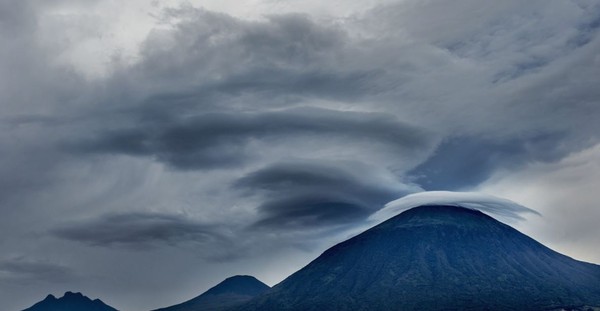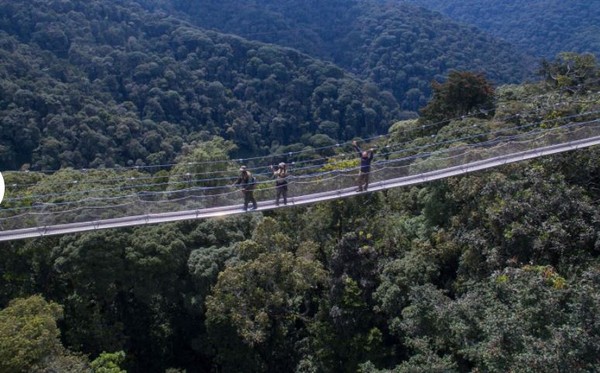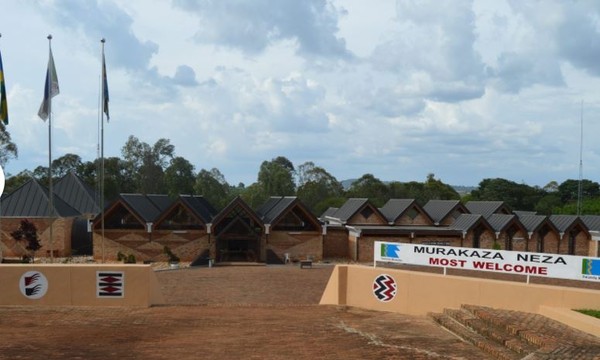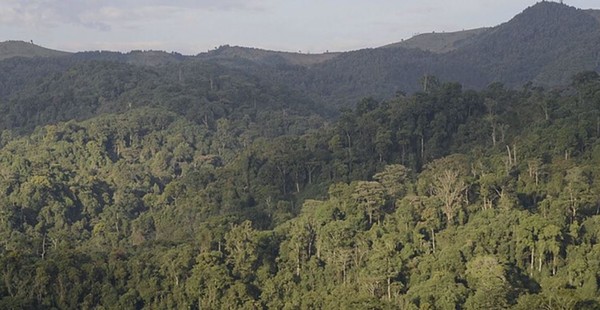Rwanda: “Land of a Thousand Hills," "Land of Eternal Spring"
By Vice Chairperson Joy Cho (feature editor)
Following the establishment of diplomatic relations with the Republic of Rwanda in 1963, the Republic of Korea opened its Embassy in Rwanda for the first time in the 1970s, and again in the 1980s, before circumstances forced it to be closed again. The Embassy was finally reopened on 14 May 2011.
The Republic of Rwanda is located in central Africa, close to the Equator. Rwanda's climate is moderate all year round, and its mountainous terrain provides a magnificent landscape. Rwandans are proud of their country's beauty, referring to it as "the Land of a Thousand Hills," or "the Land of Eternal Spring."

Overcoming the tragedy of 1994, Rwanda has successfully continued its journey towards national reconciliation and has achieved remarkable economic development, making it a model country in the African continent. Rwanda is a densely populated country with over 12 million people living in an area similar to the size of the two Gyeongsang provinces of Korea combined.
Nevertheless, the youth constitute around 60% of the Rwandan population, making Rwanda a young and dynamic country full of potential for development.
For years, the bilateral relationship between Korea and Rwanda has steadily developed, most notably in the area of development cooperation.

Rwanda has been one of the core partner countries since 2010, and as a result Korea's development cooperation agencies such as KOICA (Korea International Cooperation Agency) and EXIM Bank are working on various development projects in the field rural development, education and ICT. A number of Korean NGOs are also carrying out different projects in rural areas to increase their income and nutrition level.
The Rwandan Government, in appreciation of Korea's remarkable development experience and considering it as an exemplary case, has also put emphasis on strengthening the bilateral relationship.
Economic cooperation between Korea and Rwanda has also increased over the years, with a Korean company successfullly establishing a nationwide 4G/LTE network in Rwanda. Various Korean companies are actively conducting business in Rwanda, investing in agricultural and construction industries.
According to the Embassy of Rwanda in Seoul.

Rwanda is a land of great diversity and beauty. Popularly known as ‘the land of a thousand hills,’ Rwanda has six volcanoes, twenty-three lakes and numerous rivers, some forming the source of the great River Nile. The landscapes in our green country are truly breathtaking.
Spectacular volcanoes and dense tropical forests dominate the north of the country, while gentle hills and valleys, calm lakes and turbulent rivers in both savannah and dense tropical vegetation dominate the rest of the country.
Rwanda boasts a wide variety of wildlife. The National Volcanoes Parc, in northern Rwanda is home to the world’s largest number of endangered mountain gorillas. Numbering in the hundreds, the gorillas live in a protected area, free from poachers.
The gorillas can be viewed in their natural mountain habitats at a fairly close range. Best known for its wealth of primates, Rwanda also has one of Africa’s richest birdlife.
A staggering 670 different bird species have been recorded in Rwanda. For botanists, the gorgeous wildflowers of the forests and mountains are capped by more than 100 orchid species in Nyungwe alone. The Akagera National Park in eastern Rwanda is teeming with wildlife both large and small. Home to the big 5, during your safari drives you meet large pods of hippos, giraffes, buffalo, zebras to hyena, impala, gazelle and much more. There are 490 bird species at the park and opportunity to have a boat trip on Lake Ihema.
Rwanda also has water-bodies which are ideal for water sports and fishing, particularly Lake Kivu in the west of the country and Lake Muhazi in the east. Lake Kivu also offers beautiful beaches, jutting peninsulas and an archipelago of beautiful islands. Rwanda, in a nutshell, is a nature lover’s paradise.
It is also one of the friendliest of countries. A warm welcome is complemented by comfortable facilities, fine food and a rich cultural heritage.

Economy of Rwanda:
According to Wikipedia, Rwanda's economy suffered heavily during the 1994 genocide, with widespread loss of life, failure to maintain infrastructure, looting, and neglect of important cash crops. This caused a large drop in GDP and destroyed the country's ability to attract private and external investment.
The economy has since strengthened, with per-capita GDP (PPP) estimated at $825 in 2019, compared with $127 in 1994. Major export markets include China, Germany, and the United States. The economy is managed by the central National Bank of Rwanda and the currency is the Rwandan franc; in December 2019, the exchange rate was 910 francs to one United States dollar.
Rwanda joined the East African Community in 2007, and has ratified a plan for monetary union amongst the five member nations, which could eventually lead to a common East African shilling.
Tourism is one of the fastest-growing economic resources and became the country's leading foreign exchange earner in 2007. In spite of the genocide's legacy, the country is increasingly perceived internationally as a safe destination.

The number of tourist arrivals in 2013 was 864,000 people, up from 504,000 in 2010. Revenue from tourism was US$303 million in 2014, up from just US$62 million in 2000. The largest contributor to this revenue was mountain gorilla tracking, in the Volcanoes National Park; Rwanda is one of only three countries in which mountain gorillas can be visited safely; the gorillas attract thousands of visitors per year, who are prepared to pay high prices for permits.
Other attractions include Nyungwe Forest, home to chimpanzees, Ruwenzori colobus and other primates, the resorts of Lake Kivu, and Akagera, a small savanna reserve in the east of the country.

